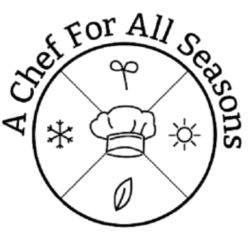TLDR: Staying current with hospitality technology boosts career growth, team efficiency, and guest satisfaction. These 13 strategies are practical, low-lift, and proven by industry pros.
Introduction
Hospitality is evolving fast—and so is the technology behind it. From kitchen automation to AI-powered hiring, keeping up isn’t just about curiosity—it’s about staying competitive. If you’re a chef, manager, or operator, this guide will give you 13 smart, realistic ways to stay current with hospitality technology without feeling overwhelmed.
Table of Contents
- Join Industry-Specific Networks
- Find a Tech-Savvy Mentor
- Attend Hospitality Tech Events
- Schedule Time for Industry News
- Follow Hospitality Innovators on Social Media
- Upskill with Short Courses
- Learn from Colleagues
- Watch Industry Talks & Webinars
- Listen to Hospitality Tech Podcasts
- Track Hospitality Start-Ups
- Trial New Tools Hands-On
- Learn from Other Segments
- Be Selective About Adoption
- Conclusion
1. Join Industry-Specific Networks
One of the simplest ways to stay updated? Surround yourself with people who are already in the know. Online platforms like this one give chefs, GMs, and hospitality leaders access to real-time discussions on what tech is working in real kitchens and dining rooms.
Pro Tip: Use groups and forums to ask about specific software or tools before committing.
2. Find a Tech-Savvy Mentor
Mentors aren’t just for big career moves—they can also guide you through changes in how kitchens run. A chef who’s already using AI for inventory or digital POS systems can save you hours of trial and error.
3. Attend Hospitality Tech Events
Whether it’s a virtual seminar or a major expo like Hotel, Restaurant & Catering (HRC) in London, tech events put you face-to-face with demos, startups, and real-world applications of emerging tools.
Can’t attend live? Many offer on-demand recordings or summaries you can scan later.
4. Schedule Time for Industry News
Set a recurring calendar block—just 10 minutes a week—to catch up on what’s new. Prioritise sources that break down tech in chef-friendly language (like BigHospitality, The Caterer, or this blog).
5. Follow Hospitality Innovators on Social Media
Platforms like LinkedIn, Instagram, and even TikTok are full of real-time insights. Look for chefs, developers, and restaurant operators showing off how they use tech—then learn from them.
6. Upskill with Short Courses
Micro-courses on AI, POS systems, or kitchen analytics tools are widely available—and often free. These courses let you stay competitive without stepping away from the kitchen.
Bonus: Some even offer certificates to add to your CV or LinkedIn.
7. Learn from Colleagues
Some of the best insights come from casual conversations. Ask your sous chef or FOH manager what systems they’ve used in the past. You might find a hidden gem your team can adopt.
8. Watch Industry Talks & Webinars
Webinars and TED-style talks often spotlight how technology is improving speed, service, and even sustainability. Block out 30 minutes a month for one—you’ll walk away with something useful.
9. Listen to Hospitality Tech Podcasts
Ideal for chefs on the go—podcasts offer hands-free learning. Try shows like Tech on Toast or Hospitality Mavericks for relevant, UK-focused tech discussions.
10. Track Hospitality Start-Ups
Follow companies on LinkedIn or check newsletters that highlight new apps, tools, and pilot programs. Many of today’s must-have tools began as start-ups nobody saw coming.
11. Trial New Tools Hands-On
Whenever possible, try a free version before committing. Inventory apps, menu design AI, or scheduling software often offer free trials. Get your hands dirty—you’ll know within days if it’s worth it.
12. Learn from Other Segments
Hotels and event venues often adopt tools before restaurants. Watch how they use tech for bookings, communication, and automation—then apply the most relevant ideas to your own space.
13. Be Selective About Adoption
Not all tools are created equal. Evaluate based on:
- Does it solve a real problem?
- Will it save time or money?
- Is it easy for my team to adopt?
Use a simple scorecard or checklist before onboarding anything new.
Conclusion
Knowing how to stay current with hospitality technology gives you more than just an edge—it gives you peace of mind. Whether it’s a kitchen tool or a hiring platform, the right tech can simplify your workflow, impress your guests, and keep your career moving forward. The key? Stay curious, stay open, and take small steps consistently.
Want to stay ahead in hospitality tech? Join our community or learn from peers who are already using tomorrow’s tools.
How do I know when it’s time to leave my chef job?
If you’re not growing, your values don’t align with your employer’s, or you’re craving better hours or pay, it may be time for a change.
What’s better for finding hospitality jobs—job boards or direct outreach?
Both. Use job boards for alerts and trusted listings. Use direct outreach to build connections and access hidden opportunities.
How do I stand out when applying for chef jobs?
Tailor your CV and cover letter, follow instructions carefully, and highlight how your skills match the specific role and kitchen culture.












